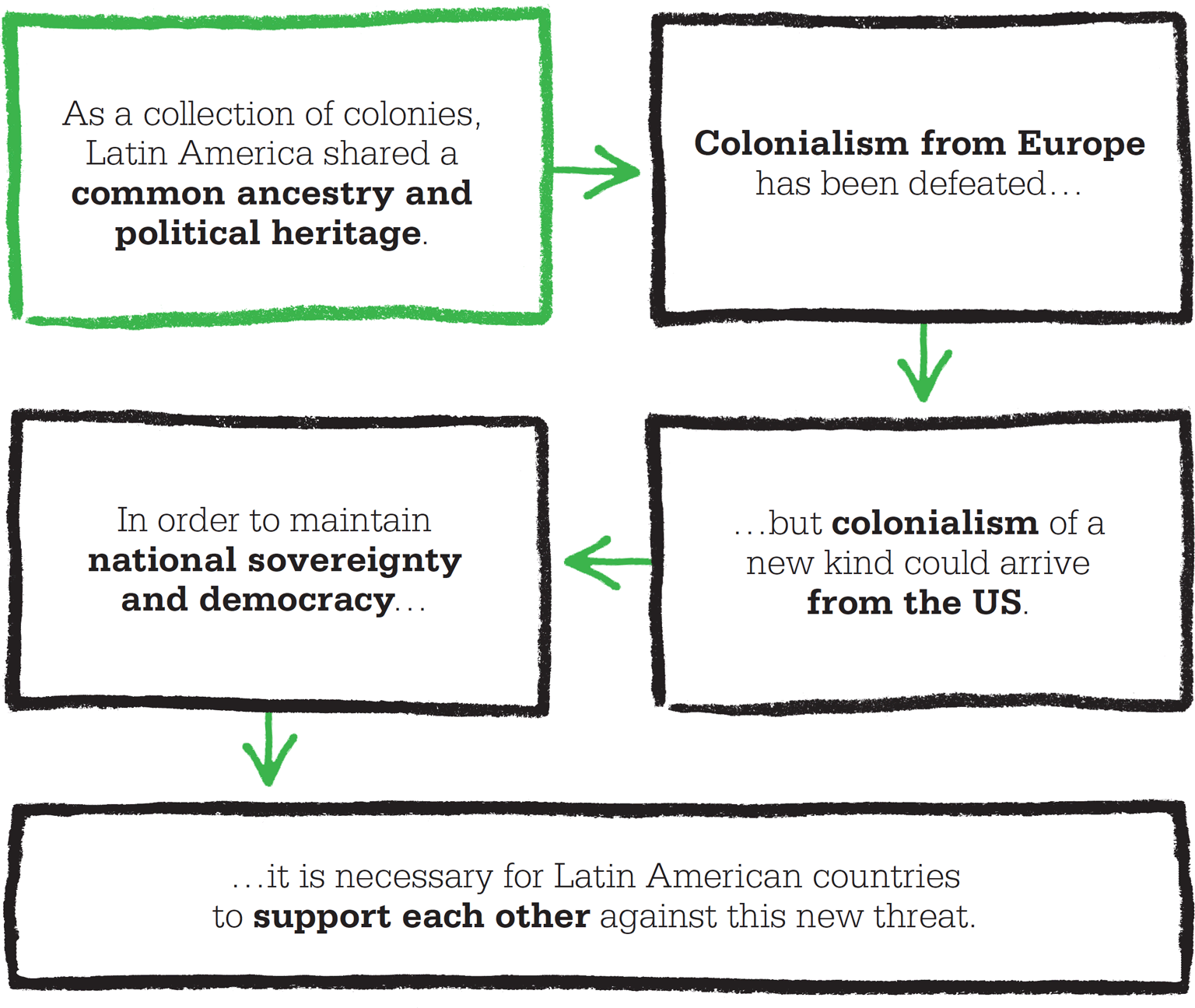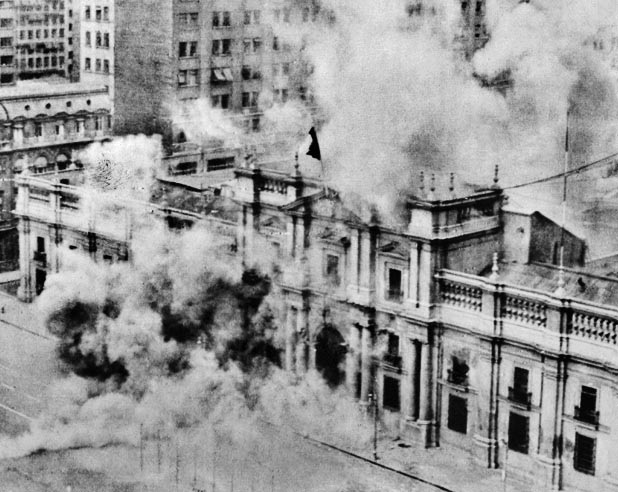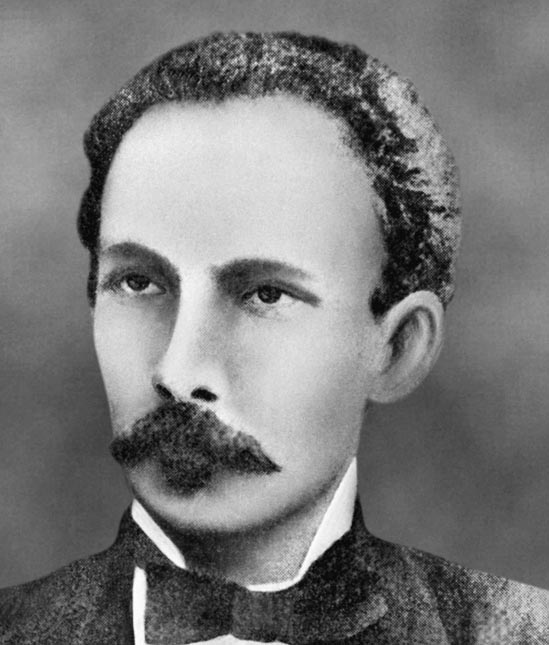
IN CONTEXT
Anti-imperialism
United States interference
1492 Partly financed by Spain, Christopher Columbus explores the New World.
1803 Venezuela is the first Latin American country to revolt against Spanish rule.
1902 Cuba gains formal independence from the US, which retains the Guantanamo Bay naval base.
1959 Cuban dictator General Batista is ousted by Fidel Castro’s July 26 Movement.
1973 Chile’s elected ruler, Salvador Allende, is overthrown in a CIA-backed coup, and replaced by a military dictatorship or junta. By the 1980, juntas have seized control across Latin America.
By the 19th century, Spain and Portugal’s ability to defend their colonial possessions had weakened. The examples of the French and American Revolutions helped to promote a succession of uprisings throughout colonial Latin America against rule from Europe. By the 1830s, most of these colonies had achieved formal independence. Only Puerto Rico and Cuba remained under direct rule.
José Martí became one of the leaders of the Cuban struggle for independence. But as the fight against the Spanish empire wore on, through a series of uprisings and wars in the second half of the 19th century, Martí became keenly aware of a far bigger threat to the sovereignty of Latin America.
"Rights are to be taken, not requested; seized, not begged for."
José Martí
To the north, the United States had waged its own battle for independence when the Thirteen States declared their freedom from colonial rule in 1776 and won the Revolutionary War by 1783. By the end of the Civil War in 1865, the unified republic controlled much of the northern continent, and was looking outward. In the Monroe Doctrine of 1823, US president James Monroe had affirmed that the United States would remain opposed to European colonialism and would treat any further efforts by the Old World to extend or establish colonies in the Americas as an act of aggression. Critically, the Monroe Doctrine identified both North and South America as falling under the protection of the United States.

A new colonial power
Latin American revolutionaries at first greeted the Monroe Doctrine with enthusiasm. The Venezuelan leader, Simón Bolívar, believed initially they now had a powerful ally in their fight for freedom. But as it consolidated its power, the US increasingly used the Doctrine to assert its control over its own “sphere of influence.”
Toward the end of his life, Martí argued for a common Latin American response in defense of their hard-won liberties. He saw a threat to democracy in the form of a new, potentially colonial power to the north. In doing so, he helped articulate a common theme of Latin American anti-imperialism for the next century or more: that the US would pursue its own economic and political interests, whatever the impact on Latin America.
Martí died in 1895. Three years later, the US won control of Cuba from Spain. Since World War II, the US has been blamed for supporting military coups and dictatorships in the region.

In 1973, Chile’s presidential palace was hit—and its socialist president Salvador Allende killed—in a military coup, one of several in Latin America that have been backed by the US.
JOSÉ MARTÍ

José Martí was a Cuban journalist, poet, essayist, and revolutionary. Born in Havana, then under Spanish rule, he became active in the movement for Cuban independence with the outbreak of the Ten Years’ War against Spain in 1868. Charged with treason in 1869, he was sentenced to six years in prison. After falling ill, he was exiled to Spain, where he was allowed to continue his studies.
After graduating in law, Martí toured the Americas, arguing the case for Latin American independence and unity. He formed the Cuban Revolutionary Party in 1892. During an insurrection against the Spanish in 1895, Martí was killed at the Battle of Dos Ríos on May 19 that year. Cuba finally broke free from Spain in 1898, when the US intervened during the Spanish-American War.
Key works
1891 Our America (essay)
1891 Simple Verses (from which Cuba’s best-known patriotic song, Guantanamera, is adapted)
1892 Patria newspaper
See also: Simón Bolívar • Emiliano Zapata • Smedley D. Butler • Che Guevara • Fidel Castro
